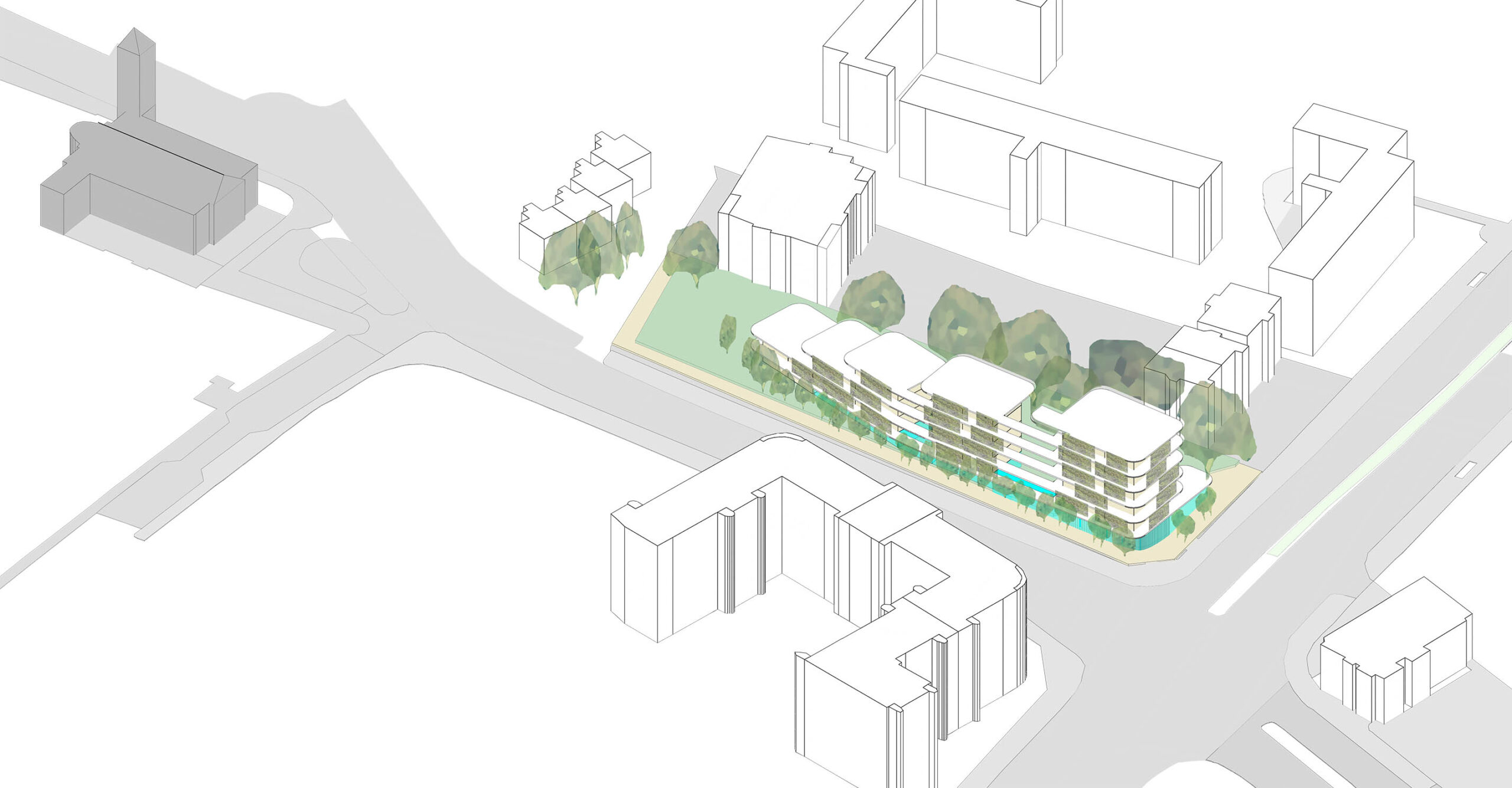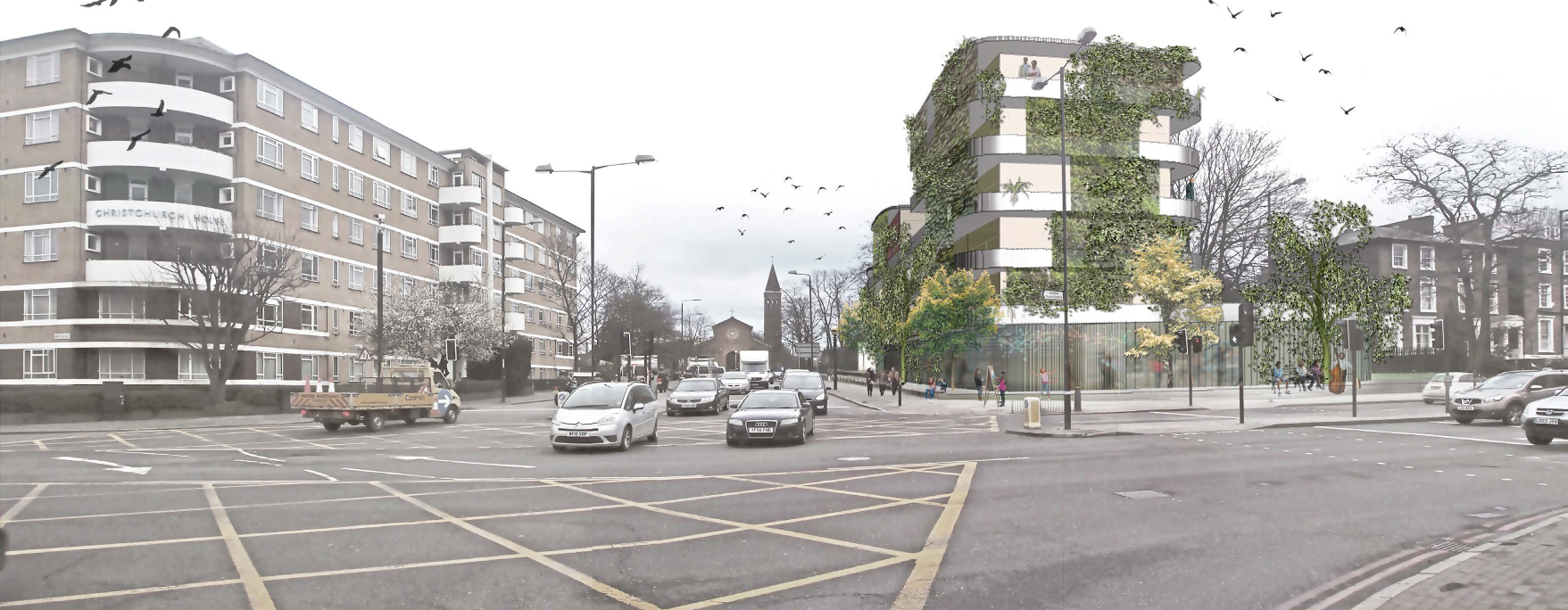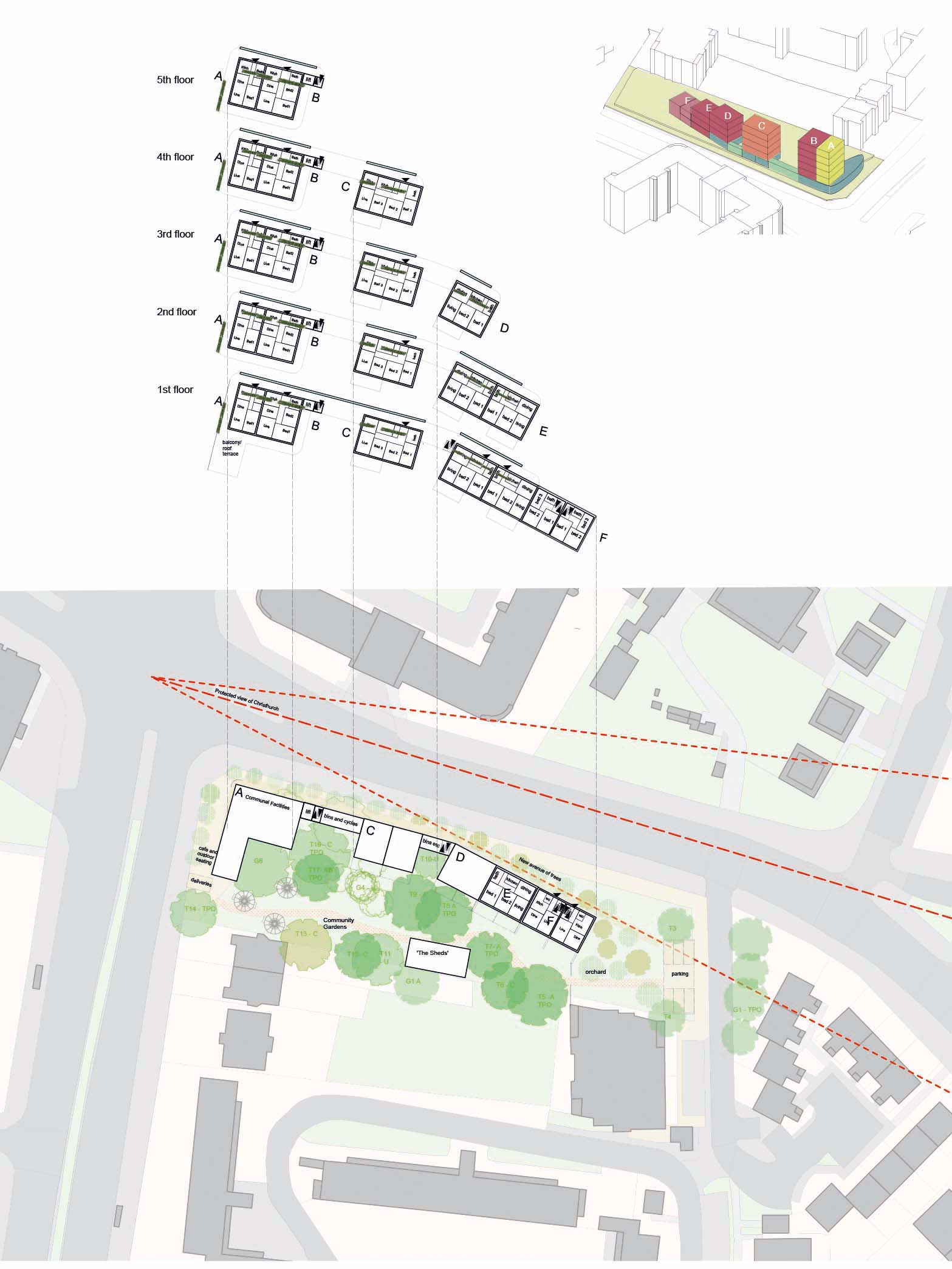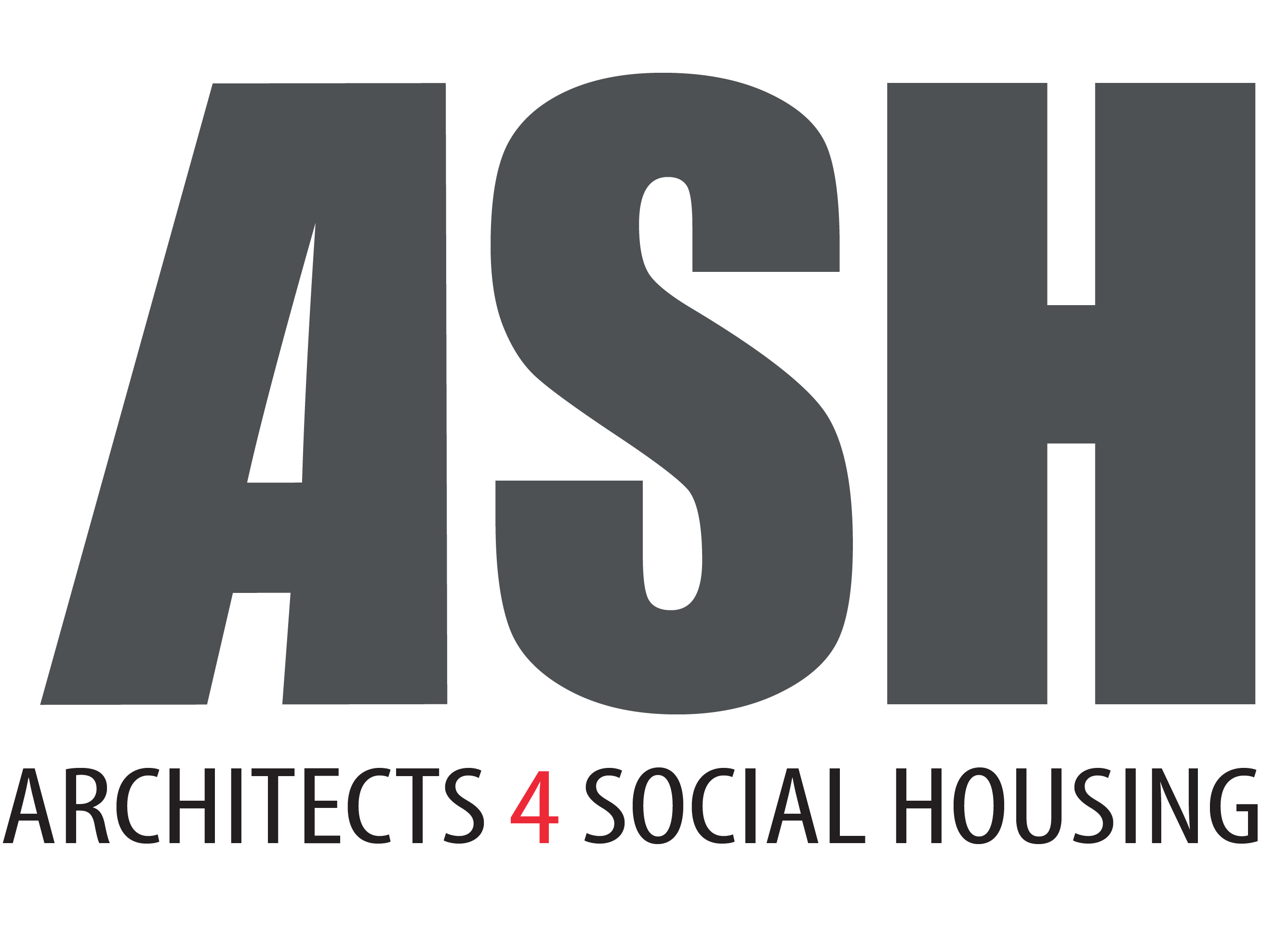Brixton Gardens Community Land Trust
Brixton, London

In 2018, Architects for Social Housing was approached by Co-ops for London regarding a collaboration with the Brixton Housing Co-op to make a bid for one of the Mayor’s Sites as part of the GLA’s Small Sites programme.
For this project – partly instigated by the GLA requirement that the site must be a CLT (Community Land Trust) we explored the potential for setting up a co-operative CLT: a relatively new form to this country in which the CLT is the form of land ownership (placing the land in trust) while the co-op is the mechanism for managing the properties. All of which were to be for social rent, and not (as is often the case with CLTs) for sale as a form of shared ownership which is not affordable to people on the Brixton Housing Co-op’s waiting list.


The housing is arranged around the existing trees and along the main road to maximise the south light into the homes and community gardens.
To address the poor air quality along the South Circular, the design incorporates a dense and low-maintenance Green Wall along the northern-most edge of the buildings, providing an acoustic barrier to the homes, as well as improving the air quality.
In partnership with a modular, pre-fabricated, structural manufacturer such as Black Country Make (BCM), the aim was to accommodate self-build where possible, enabling apprenticeships and training schemes as well as lowering the costs of construction. The proposed construction methods would have a minimum 60-year design life for the structure and weather-proofing of the building, and would be fully compliant with all relevant Building Regulations. We would work with an organisation like BCM to:
- Develop a modular ‘in the community’ approach, with minimal set-up cost;
- Build very high-performance homes for no cost premium;
- Address energy poverty;
- Enable 100 per cent local training and employment schemes with entry-level ‘work ‘n’ learn’ on the job;
- Exploit the modular approach, reducing build costs and waste and the capacity to scale without losing quality;
- Allow people of all abilities to have open access to the tools and knowledge in design, assembly and build;
- Keep the supply chain local to the community, capturing value and impact in the local economy;
- Reinvest all profits for the benefit of the local community, thereby delivering a new civic economy;
- Leave the knowledge and tools in the hands of the community to continue and expand community-led housing and development.
For a further more detailed article on the project please see here.
Project team and collaborators
- Lead Architect and Principal Designer: Architects for Social Housing
- Project Manager: Robert Martell and Partners
- Quantity Surveyor: Robert Martell and Partners
- Structural Engineers: Tom Robertshaw Glass Limited
- Environmental Engineers: (TBC, but ideally Model Environments)
- Environmental Green Wall Consultants: Elegant Embellishments
- Renewable Energy Consultants: Brixton Energy Co-op / Repowering London
- Contractor: Black Country Make and RobsonWalsh Chartered Surveyors
- Community-led Pre-fab/Self-build Construction Team: Black Country Make
